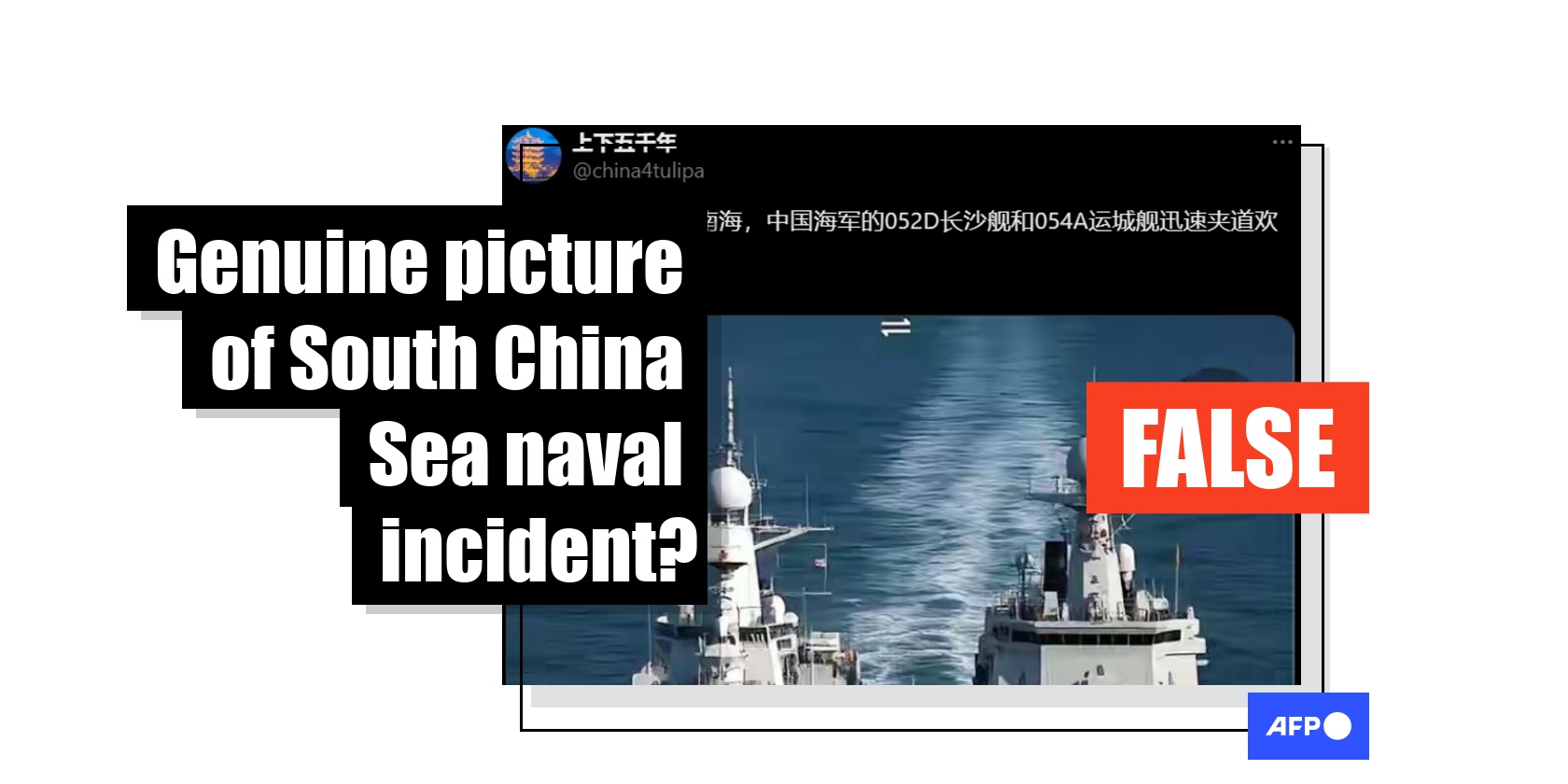
Fabricated image spurs false claims of China, Canada warships 'close encounter'
- This article is more than one year old.
- Published on February 25, 2025 at 04:27
- 3 min read
- By AFP Hong Kong
"When the Canadian ship Ottawa came to the South China Sea, the Chinese Navy's 052D Changsha and 054A Yuncheng ships were quick to welcome it!" reads a simplified Chinese X post on February 13.
The image appears to show two larger ships sandwiching a smaller vessel labelled "Canada's HMCS Ottawa" on the open sea.
Text under the image reads sarcastically: "Canada's Ottawa warship was treated with courtesy in the South China Sea. It received a bodyguard escort the whole way, and its captain was dismissed mid-journey."
It goes on to suggest China's navy is the strongest in the South China Sea and that it will treat American warships similarly.

The image surfaced elsewhere on X, Facebook, and Weibo alongside similar claims about Chinese warships "sandwiching" HMCS Ottawa.
The Canadian navy has taken part in recent months in several patrols in the South China Sea with the United States, Australia, the Philippines and Japan to assert freedom of navigation and flights in a strategic waterway claimed almost in whole by Beijing (archived link).
Although Canadian broadcaster CTV reported in January that HMCS Ottawa was tracked by various Chinese navy ships in the South China Sea, there are no official reports they surrounded the Canadian vessel.
Long range encounter
Canadian broadcaster CTV's correspondent Adrian Ghobrial was aboard HMCS Ottawa during its January deployment, and he reported the Chinese warships Yuncheng and Changsha were seen "hovering along the horizon" as the Canadian ship met a US vessel near the contested Scarborough Shoal (archived link).
The triangular chain of reefs and rocks in the South China Sea has been a flashpoint between the countries since China seized it from the Philippines in 2012 (archived link).
CTV also published footage of the Yuncheng tracking HMCS Ottawa on January 10 (archived link). The video shows the Chinese ship maintaining a relatively long distance from the Canadian ship, contrary to the circulating image.
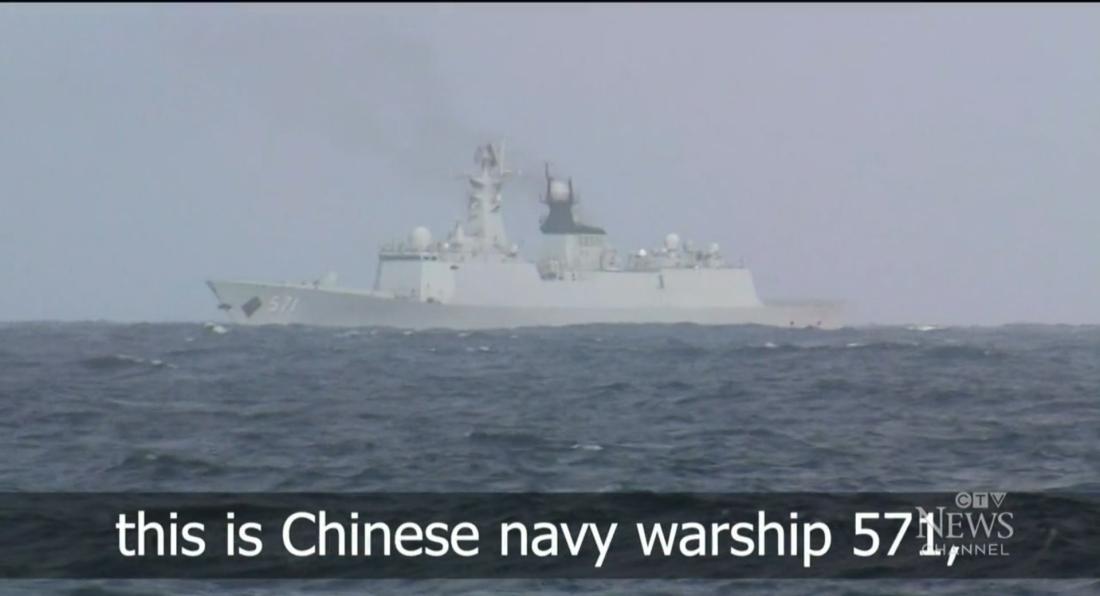
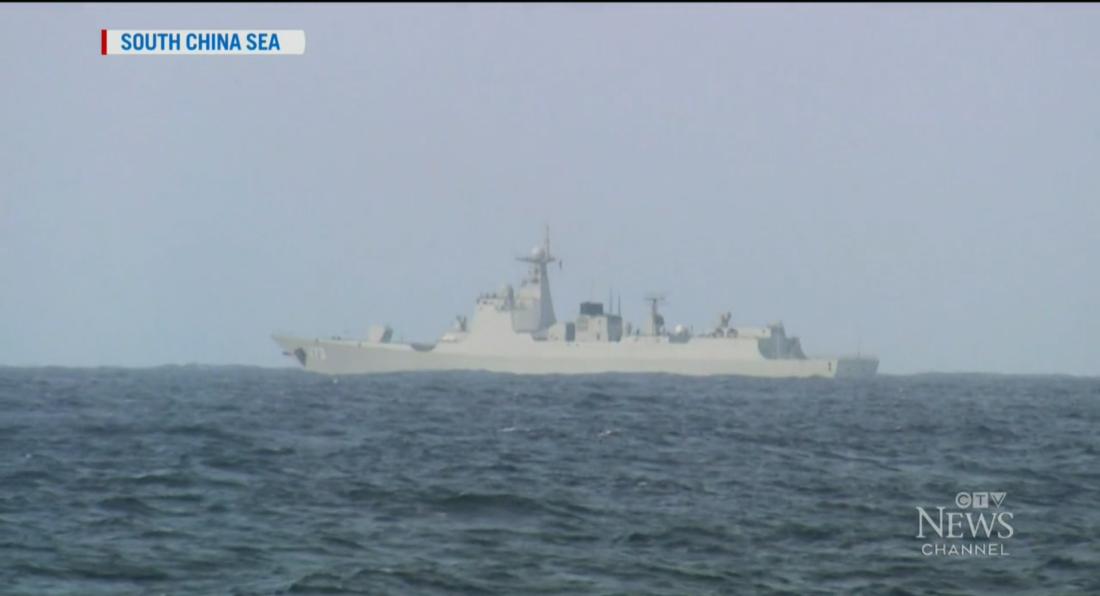
In another report on January 11, CTV said a Chinese warship sent out a radio call to HMCS Ottawa, but the footage also shows the ship keeping a distance (archived link).
Moreover, the circulating image shows signs of fabrication as the vessels depicted are inconsistent with genuine photos of the warships.
China's Changsha destroyer can be seen in a Xinhua News Agency photo uploaded on AFP's archives, while the Yuncheng can be seen in a stock photo published by British photo agency Alamy (archived links here and here).
The genuine photos show different radars at the top of both ships, while the hull identification numbers in the circulating image appear to be gibberish.
The shape of the ships' bows also does not match.
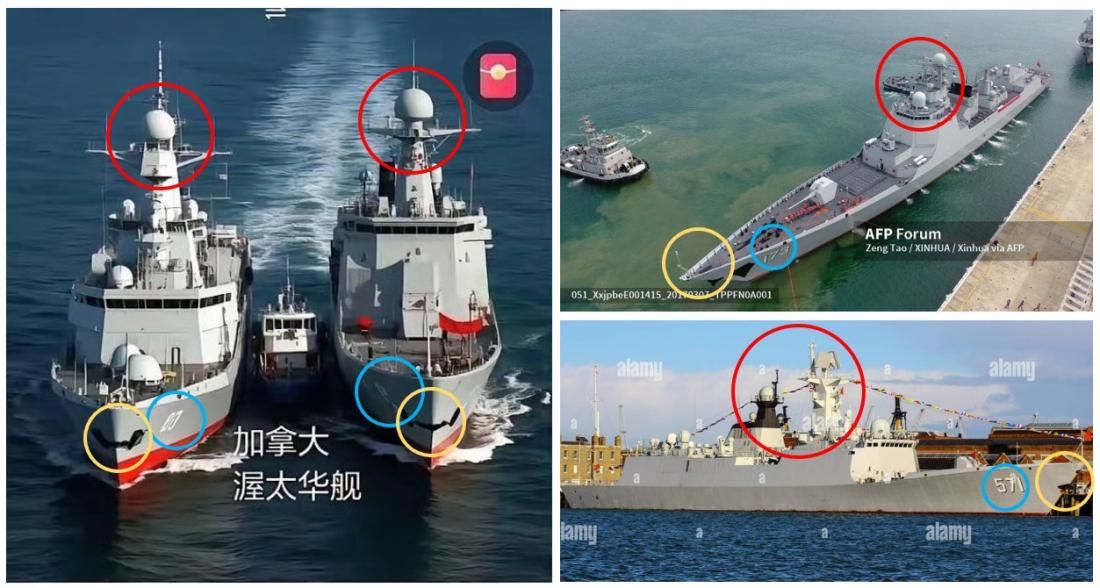
An AFP photo of HMCS Ottawa shows a much larger vessel with a different structure (archived link).
According to the Canadian navy, HMCS Ottawa is a Halifax-class frigate and is 134 metres (440 feet) long, while Chinese media reported the Yuncheng is approximately the same length as the Ottawa and the Changsha is 157 metres (515 feet) long (archived links here, here and here).
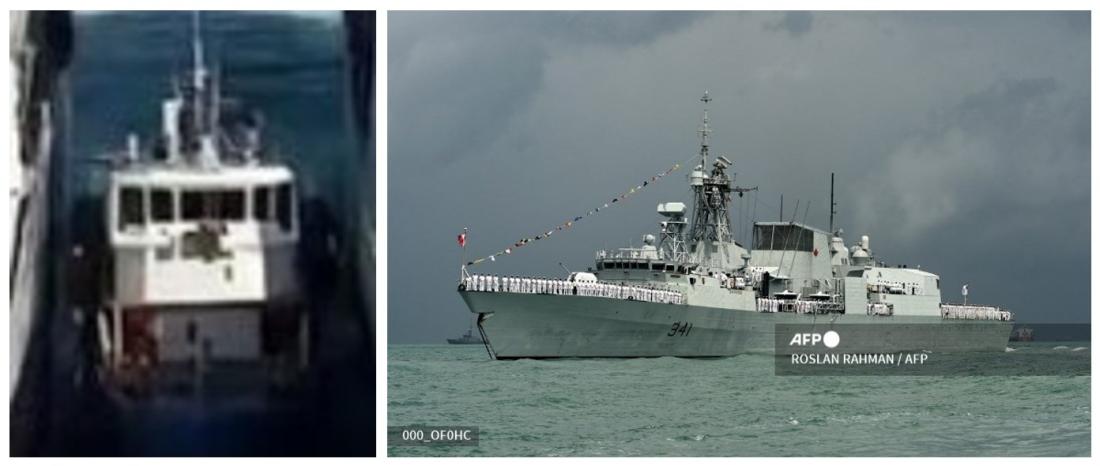
AFP has debunked a deluge of misinformation over the South China Sea.
Copyright © AFP 2017-2026. Any commercial use of this content requires a subscription. Click here to find out more.
Is there content that you would like AFP to fact-check? Get in touch.
Contact us
